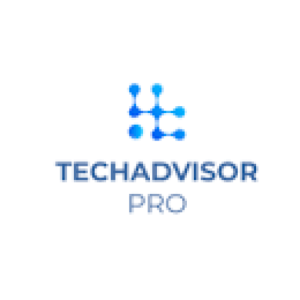In the B2B lead generation, data privacy is more than just a compliance requirement; it’s a strategic advantage. As companies increasingly rely on data-driven tactics to identify, engage, and convert prospects, the need to handle personal and business data responsibly has never been greater.
Regulations are tightening, customers are becoming more privacy-conscious, and reputational risks are higher than ever. For B2B lead-gen firms, prioritizing data privacy is essential for long-term success, trust, and scalability.
Why Data Privacy Matters in B2B Lead Generation
Unlike B2C, where personal data like phone numbers and home addresses dominate, B2B data may include professional emails, job titles, IP addresses, company details, and even behavioral insights gathered from digital touchpoints. Misusing or mishandling this data can expose companies to severe consequences.
Key reasons why data privacy must take center stage:
- Regulatory Risk: Regulations like the General Data Protection Regulation (GDPR) and California Consumer Privacy Act (CCPA) apply to both B2C and B2B interactions, with heavy penalties for violations.
- Client Trust: Business clients expect ethical handling of their data. One privacy misstep can jeopardize long-standing relationships.
- Brand Reputation: A privacy breach or non-compliance scandal can damage brand credibility beyond repair.
- Data Accuracy and Quality: Ethical data collection methods often result in higher-quality, more relevant leads.
Growing Privacy Regulations B2B Firms Must Understand
B2B companies are increasingly subject to the same rules that govern consumer data protection. Here are some regulations lead-gen companies must navigate:
- GDPR (EU): Requires businesses to obtain explicit consent before collecting and processing personal data. It mandates transparency, data minimization, and user rights over their information.
- CCPA (California, USA): Grants businesses the right to know what personal information is collected and allows customers to opt out of the sale of their data.
- DPDP Act (India): India’s Digital Personal Data Protection Act requires companies to inform users about how their data is used and grants them the right to correction and erasure.
Failing to comply with these laws can result in fines, litigation, and a loss of customer trust.
Challenges B2B Lead-Gen Companies Face with Data Privacy
Despite growing awareness, several challenges make it difficult for B2B marketers to align fully with data privacy best practices:
- Ambiguity Around B2B Exemptions: Some regions provide different levels of protection for B2B data, causing confusion.
- Overreliance on Third-Party Data: Purchasing contact lists from unverified sources can violate privacy laws.
- Lack of Internal Policies: Many smaller B2B firms lack documented data collection and processing protocols.
- Outdated Tech Stacks: Legacy CRMs and marketing tools may not offer privacy-first features like consent tracking or anonymization.
To overcome these barriers, a proactive and policy-driven approach is essential.
Best Practices to Strengthen Data Privacy in B2B Lead Generation
Adopting a privacy-first strategy can help B2B lead-gen companies build resilience and credibility. Here’s how:
- Implement Consent-Based Marketing: Always collect opt-in consent for email marketing, cookies, or retargeting campaigns. Use tools like cookie banners, consent managers, and double opt-ins.
- Audit Your Data Sources: Regularly verify the origin and legitimacy of the data you use. Avoid unverified third-party lists.
- Limit Data Collection to Essentials: Collect only the data you need. Over-collection not only violates privacy norms but also complicates data management.
- Train Your Teams: Ensure that your sales, marketing, and tech teams are trained on current data protection regulations and ethical handling.
- Update Your Privacy Policy: Make your privacy policy accessible and understandable. Clearly state how you collect, use, store, and delete data.
- Choose Privacy-First Tech Tools: Use CRMs and marketing automation platforms that offer built-in data privacy features such as encryption, access control, and data lifecycle management.
The ROI of Privacy-First Lead Generation
Investing in data privacy can enhance your lead generation outcomes:
- Higher Lead Quality: Opt-in leads are more engaged and conversion-ready.
- Stronger Client Relationships: When clients know you protect their data, they’re more likely to stay loyal and refer others.
- Faster Deal Cycles: Trust accelerates decision-making and reduces friction during onboarding or procurement.
- Global Reach: Complying with international privacy laws enables you to scale across borders without legal roadblocks.
According to a Cisco Consumer Privacy Survey, 76% of organizations experienced business benefits from privacy investments, including better agility, operational efficiency, and innovation.
Conclusion
Data privacy should be treated as a core part of every B2B lead generation strategy. As businesses rely more on digital platforms to collect and manage prospect information, the responsibility to handle that data securely becomes even more critical.
By focusing on transparent data practices, following relevant regulations, and using privacy-first tools, lead generation companies can improve trust, reduce compliance risks, and deliver better results. Prioritizing privacy leads to stronger relationships with clients and positions the company for long-term growth.










